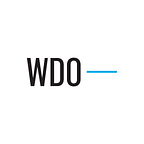JERRY is one of ten projects shortlisted for the World Design Impact Prize 2021
JERRY: A simple design to provide clean drinking water
“More people die from unsafe water than from all forms of violence, including war.” - former UN secretary-general Ban Ki-moon
Access to safe drinking water is a universal human right. Despite this, millions of people around the world do not have access to clean drinking water. In fact, according to World Health Organization, half a million people die from contaminated drinking water every year, most of them children. UNICEF estimates that 700 children under the age of 5 are dying every day from causes linked to unsafe drinking water.
Not only does the shortage of safe, clean water have a devastating impact on health, it is also at the root of many other issues such as food insecurity, school attendance and gender inequity. Women and girls usually bear the responsibility of collecting water for their communities, walking many miles through dangerous areas instead of going to school.
According to a joint WHO and UNICEF report, if current trends persist, 1 in 4 people will be unable to access safely managed household drinking water in 2030. The global pandemic has also highlighted the urgency for everyone to be able to wash their hands with soap and clean water to prevent the spread of disease, including the COVID-19 virus.
“Even before the pandemic, millions of children and families were suffering without clean water, safe sanitation, and a place to wash their hands,” said UNICEF Executive Director Henrietta Fore. “Despite our impressive progress to date to scale-up these lifesaving services, the alarming and growing needs continue to outstrip our ability to respond. The time has come to dramatically accelerate our efforts to provide every child and family with the most basic needs for their health and well-being.”
It was while on a trip to India that Dutch product designer Olivier de Gruijter noticed the widespread use of jerrycans, plastic or metal containers, to collect dirty water from rivers or wells. He wondered whether it would be possible to add a small water filter directly to the can.
He set out to design a portable, low-cost tap to attach to these jerrycans with the hopes that it could provide safe drinking water to those who need it most. “In many places, jerrycans are an integral part of the water infrastructure and are used to transport and store drinking water,” JERRY business developer Eise van Maanen said. “This device enables people to treat water in their jerrycans at the point-of-use.”
While most water filters are integrated into large tanks, JERRY can be easily mounted onto a jerrycan. “Many water filter systems are complex to maintain,” de Gruijter said. “We have developed a water filter that allows people to clean their water on a daily basis in a simple way.”
During a small trial in Ethiopia, de Gruijter handed out prototypes to families without any directions. “People were given one of the jerrycan filters without any explanation — just sort of, ‘good luck,’ to see how they work,” he says. “And each of the participants was able to install it correctly, get a glass of water, and, by doing so, maintain the filter, all within 30 seconds.”
The tap’s filter system eliminates dirt and sand, bacteria, and viruses from the contaminated water, and can last several years, cleaning over 10,000 litres of water before it needs to be replaced. Another advantage is the tap’s pump mechanism, which enables even young children and the elderly to use it quite easily on their own.
JERRY is currently being tested in a refugee camp in Iraq, with the hope that in the next five years, JERRY will provide safe drinking water for up to one million people, targeting the most vulnerable to clean water shortages, including those living in refugee camps, conflict situations and natural disaster areas.
WDO’s World Design Impact Prize™ was established in 2011 to honour and elevate industrial design driven projects that benefit society. The award aims to bring visibility and recognition to socially responsible design initiatives around the world.
View the other World Design Impact Prize 2021 shortlisted projects.
